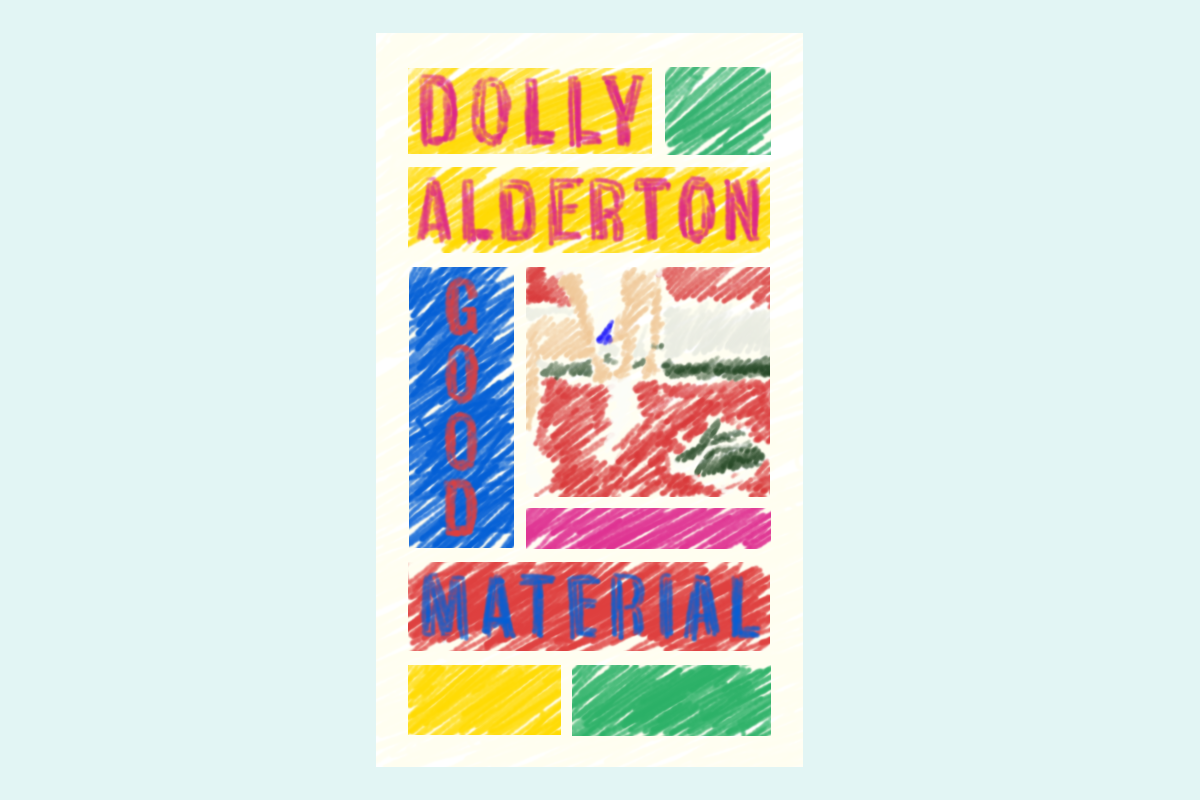Author Dolly Alderton is no stranger to spinning life’s misfortunes into comedic gold, and her newest novel, “Good Material,” — released at the end of January — is a testament to her talent.
Writing through the voice of a male narrator, Alderton reflects on heartbreak as a source of creative inspiration. Her voice and writing shine in this book through her colorful prose, snippets of wisdom and charming reflections on love, life and relationships.
The book follows Andy, a struggling comedian in his 30s, freshly dumped by his girlfriend Jen for reasons that are as mysterious to him as they are to the reader. He doesn’t believe that his ex truly wants to be single. As he tries to determine the real reason for the breakup, we follow Andy as he frets about hair loss, stalks his ex on social media and struggles to make plans with his friends, all of whom have wives and children.
In the final chapters, the book flips to Jen’s point of view and the reader learns why the couple broke up. Instead of the typical happily ever after, the conclusion to “Good Material” leaves readers wondering where Jen and Andy’s separate lives will lead them.
“Good Material” contains everything that makes Dolly Alderton one of the contemporary fiction writers of our time. Her best-selling 2018 memoir, “Everything I Know About Love,” is a trove of stories and lessons from the messiness of twenty-something life, and her semi-autobiographical debut novel, “Ghosts,” follows a successful young female writer’s attempts to use dating apps.
Her second novel has the same effortlessly movie-like and page-turning quality due to her background in screenwriting. Each chapter contains radiant, funny and natural dialogue and moves the story along. “Good Material” retains the same relatability found in Alderton’s previous books, as she authentically depicts romantic relationships mediated through dating apps, social media, breakup songs and movies.
She writes from Andy’s perspective with sophistication and sympathy, having based the character on interviews conducted with roughly 15 men in her life.
In Alderton’s research, she found that men don’t often think they have the capacity or space to talk about their emotions with their male friends. Whereas in her previous books, one of the central messages is that authentic love is within her characters’ friendships with women. In “Good Material,” she instead explores what men seem to lack in their close friendships, while contrasting it to the way the female characters helped Jen process the breakup.
We see Andy perplexed by and critical of the lack of emotional support among his male friends when Jon, a close friend, breaks up with his girlfriend. Rather than an emotional response, his male friends propose solutions and impersonal platitudes. No one asks Jon about how he is really doing. On the other hand, Jen goes to therapy and is immediately whisked away by her girlfriends for a weekend.
Alderton conveys Andy and Jen’s emotions and perspectives with a vulnerability, nuance and complexity that force readers to ponder modern dating long after turning the final page. Keeping in line with the recurring themes of her previous books, Alderton insists that no one in life has it all figured out, and it’s normal to ponder what could’ve been.
Contact Lulu Chatterjee at [email protected].


























































































































































